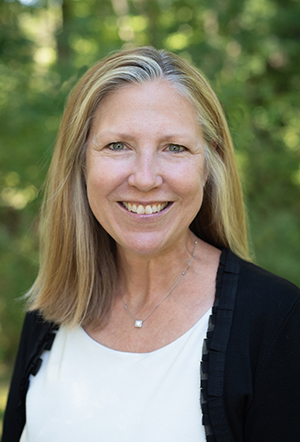How can you best help your children become life-long, passionate, and skilled readers? Help them find that just right book!
At Willow, we support reading by helping our students find the perfect book, both inside and outside of the classroom. We call these books just right books. How can you help your child find them? Willow’s Assistant Head of School, Meagan Coy, whose many previous positions at Willow include English teacher, librarian, and reading specialist, offers the following advice for parents:
 Start with your child’s interests.
Start with your child’s interests.
Just right books are books that, first and foremost, your child is interested in reading. Perhaps he loves a particular genre, like mysteries or sci-fi books. Perhaps she has fallen in love with a particular series. Maybe she has a favorite author. Maybe he is interested in specific topics, and you can help him find non-fiction books that appeal to that interest.
Get your child involved in the browsing experience. Whether you’re browsing books online or eventually back in a bookstore or library, look at titles and read reviews together. Being a part of the selection process will get your children more excited to read.
Strike a balance between fluency and challenge.
Research tells us that there is a sweet spot when matching children to books. Educators call this a child’s zone of proximal development. Parents can think of it as the Goldilocks rule to reading – not too easy, not too difficult, but just right.
 Children benefit from reading books that are slightly challenging (yet not too hard) and can be read with fluency. Reading with fluency means that your child is able to decode words and read in meaningful phrases, rather than struggling to read one word at a time. According to research from Columbia’s Teachers College, it can be detrimental for readers to stumble through books where more than one in twenty words (approximately three words per page) pose difficulties. If you’re not sure which books strike that balance for your child, try a few. Watch for the number of words he or she struggles with – is there some challenge, but not too much? That’s your perfect book!
Children benefit from reading books that are slightly challenging (yet not too hard) and can be read with fluency. Reading with fluency means that your child is able to decode words and read in meaningful phrases, rather than struggling to read one word at a time. According to research from Columbia’s Teachers College, it can be detrimental for readers to stumble through books where more than one in twenty words (approximately three words per page) pose difficulties. If you’re not sure which books strike that balance for your child, try a few. Watch for the number of words he or she struggles with – is there some challenge, but not too much? That’s your perfect book!
Check for comprehension, not just pronunciation.
It’s important to make sure your child can not only read the words of the book but also understand their meaning. This was the case with one of my own daughters who learned to read at a very young age. By the time she was in first grade, she could read almost anything fluently. Just listening to her, one would think that these books were too easy for her. But after engaging in conversations with her about the books, it was clear that there were gaps in her comprehension. So what I had thought was a just right book for her at that time in her reading development was actually slightly too advanced for her stage of development. Ask your child questions about what they just read to determine their comprehension.
 Find out your child’s reading level.
Find out your child’s reading level.
While the tips above can help you assess which books might be best for your child’s development, knowing your child’s reading level will make it even easier to search for more. Ask your child’s teacher about his or her current reading level. Various leveling systems are used to differentiate books, but one popular leveling system is called a guided reading level. Students fall within a level ranging from A-Z. Once you know your child’s guided reading level, you can easily search for book titles by guided reading level here. Keep up with your children’s reading level by checking back in with the teacher to see if your child has progressed.
Self-assess through positive conversations.
If access to your children’s teacher is limited right now, you can self-assess when your children are ready to move up a level by listening to their oral reading fluency and gently checking on their comprehension. Talk to them about their books rather than questioning them. The last thing you want is to discourage your children from wanting to speak with you about books. By listening to your children’s reading and assessing your book conversations, you’ll likely have a sense as to whether your children’s books are just right.
At Willow, we teach our students to self-assess whether a book is just right. Your children can do this at home by asking themselves:
- Is the book interesting to me?
- Do I understand what I am reading?
- Are there more than three words on a page that I am unable to read?
If your children say no to any of these questions, look for a book at a level lower and try again.

Encourage voracious reading.
Now that you’ve found some just right books, encourage voracious reading. After all, one of the greatest indicators of reading success is time devoted to reading. Create an environment at home that is conducive to reading. Help your children find cozy corners for their reading – a beanbag in a sunlit corner, a pillow-filled tent under your dining room table, an outdoor nook in your yard, or their own bed. Model daily reading by making sure your children see you reading. Support the goal of reading at least thirty minutes each day, and get your family excited about it. Maybe you all read at a certain time!
Increase accessibility to books.
Finally, ensure your children have access to as many just right books as possible. Buy or borrow books and display them throughout your house. Think about how enticing books are when you see them prominently displayed in book stores. Now try to recreate this feeling in your children’s spaces in your house. Rotate these books so that new books are always magically waiting for them to explore!
Take advantage of online options to purchase or read new books. Willow’s online book fair is open to the public, and our reading specialist and librarian Katie Ackerman has tailored the homepage to offer some great options for different ages. Of course, you don’t need a physical book to encourage your children to read. Check out eBook and virtual options for kids, like Raz-Kids and Epic, many of which are offering free trials or free access during this time.
At a time in our lives when we are at home with our kids more than ever before, we can embrace this unique opportunity to affect the trajectory of our children’s reading lives. Since we know our children better than anyone else, we as parents are well suited to affect positive change. This can be one of the many silver linings of being at home with our children!
For more tips on how to inspire a love of reading at home, check out Meagan’s webinar recording on our YouTube channel. We will also be hosting a webinar on building reading skills for our youngest readers on June 4th with Willow reading specialist Katie Ackerman. Sign up here!



